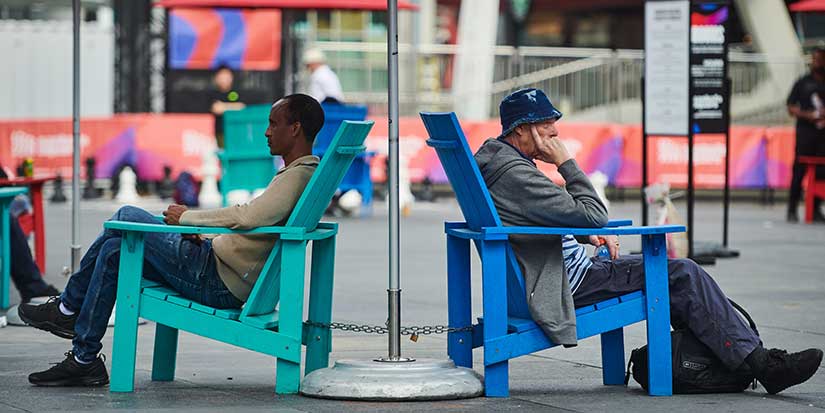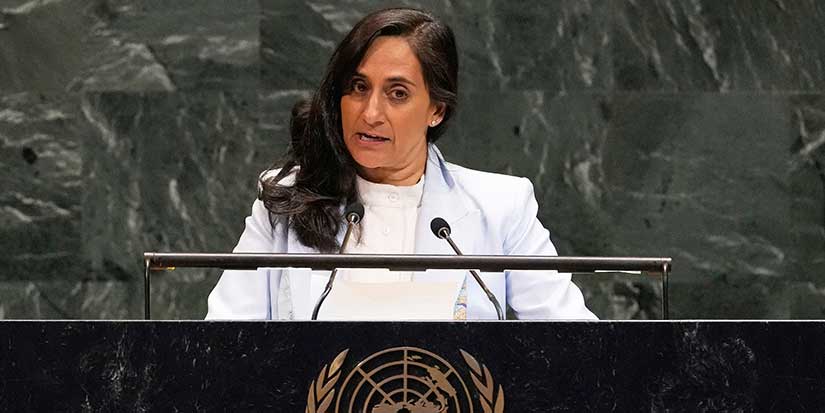Latest News
B.C.’s COVID-19 strategy shifts away from contact tracing

By Hannah Scott, Local Journalism Initiative reporter
Published 5:20 PST, Fri January 21, 2022
—
As B.C. continues to navigate the challenges of the Omicron variant, the province’s COVID-19 strategy is shifting away from contact tracing.
Provincial health officer Dr. Bonnie Henry said today that contact tracing can be effective when diseases have a longer incubation period, low infectiousness, and the possibility of effective measures to prevent infection. While Henry said contact tracing worked earlier in the COVID-19 pandemic, and most people were found and told to isolate within the five- to seven-day incubation period, some things have changed since then.
The Omicron variant is highly infectious, has a shorter incubation period, and many people have mild or asymptomatic illness and don’t even realize they are infected. There are also new and better interventions including vaccines and some treatments.
“With the emergence of these more transmissible variants with shorter incubation periods, COVID-19 is no longer an infection for which contact tracing is an effective intervention,” Henry said. “I absolutely recognize this is a shift and it means we have to change our way of thinking.”
Henry said the new measures are much more like how we manage other respiratory illnesses, including influenza and the common cold.
“We cannot eliminate all risk. This virus has changed and has become part of what we will be living with for years to come. But we can use all of the layers of protection.”
She said everyone should be routinely self-monitoring for symptoms daily. Anyone with symptoms should stay home and away from others until they feel better.
“Right now, with the level of transmission in our communities, we all need to assume that we have been in contact with somebody with the virus,” she said. “We don’t need to isolate if a friend or family member knows that they have COVID, because there are many more people who’ve not been tested who may have it as well, and we need to treat this across the board as if we’ve been exposed.”
Unvaccinated people who test positive must self-isolate for 10 days. Vaccinated people and children must self-isolate for five days. Henry said while vaccination allows for a shorter minimum isolation period, that doesn’t mean the risk of transmission is eliminated.
“People who (are) infected with Omicron, even with mild illness, can shed for up to 10 days like we see with other variants. But that risk is reduced, and it goes down quite dramatically after about day three to five. So we are mitigating that risk,” Henry said.
She added that this is why other measures like mask-wearing and following COVID-19 safety plans continue to be important. Children are at a much lower risk of severe illness.
“Vaccinating all of those who are eligible around children is a much more effective intervention than isolating children,” she said.
Health officials also reported 2,364 new cases of COVID-19 today. Since the pandemic began, B.C. has recorded 308,079 cases.
Of the new cases, 499 are in the Vancouver Coastal Health region (including Richmond), 686 in the Fraser Health region, 334 in the Island Health region, 655 in the Interior Health region, 190 in the Northern Health region and no new cases of people who reside outside of Canada.
There are 33,997 active cases of COVID-19 in B.C. and 924 of those people are hospitalized, 130 of whom are in intensive care.
To date, 10,334,333 doses of Pfizer-BioNTech, Moderna, AstraZeneca and Pfizer Pediatric COVID-19 vaccines have been administered in B.C.; 4,162,591 of those are second doses and 1,754,063 are third doses.
This means that 92.9 per cent of adults, 92.5 per cent of people aged 12 and older and 89.4 per cent of people aged five and older have received their first dose of a vaccine. In addition, 90.3 per cent of adults, 89.8 per cent of those aged 12 and older and 83.5 per cent of those aged five and older have received two doses; 40.5 per cent of adults and 37.8 per cent of those aged 12-plus have received three doses.
Sadly, there were nine new virus-related deaths reported today, bringing that total to 2,529. Of those who died, four lived in the Vancouver Coastal Health region, four in the Fraser Health region and one in the Island Health region.
Health authorities reported five new health-care facility outbreaks and declared one over. Active outbreaks continue at 51 long-term care facilities, one assisted or independent living facility and 10 acute care facilities.
From Jan. 13 to 19, people not fully vaccinated accounted for 27.6 per cent of cases. From Jan. 6 to 19, they accounted for 30.9 per cent of hospitalizations.
Past week cases (Jan. 13 to 19)—Total 14,267
• Not vaccinated: 3,216 (22.5 per cent)
• Partially vaccinated: 721 (5.1 per cent)
• Fully vaccinated: 10,330 (72.4 per cent)
Past two weeks cases hospitalized (Jan. 6 to 19)—Total 1,193
• Not vaccinated: 315 (26.4 per cent)
• Partially vaccinated: 54 (4.5 per cent)
• Fully vaccinated: 824 (69.1 per cent)
Past week, cases per 100,000 population after adjusting for age (Jan. 13 to 19)
• Not vaccinated: 416.8
• Partially vaccinated: 188.6
• Fully vaccinated: 223.4
Past two weeks, cases hospitalized per 100,000 population after adjusting for age (Jan. 6 to 19)
• Not vaccinated: 78.6
• Partially vaccinated: 43.3
• Fully vaccinated: 17.7
For the latest medical updates, including case counts, prevention, risks and to find a testing centre near you: http://www.bccdc.ca/ or follow @CDCofBC on Twitter.































